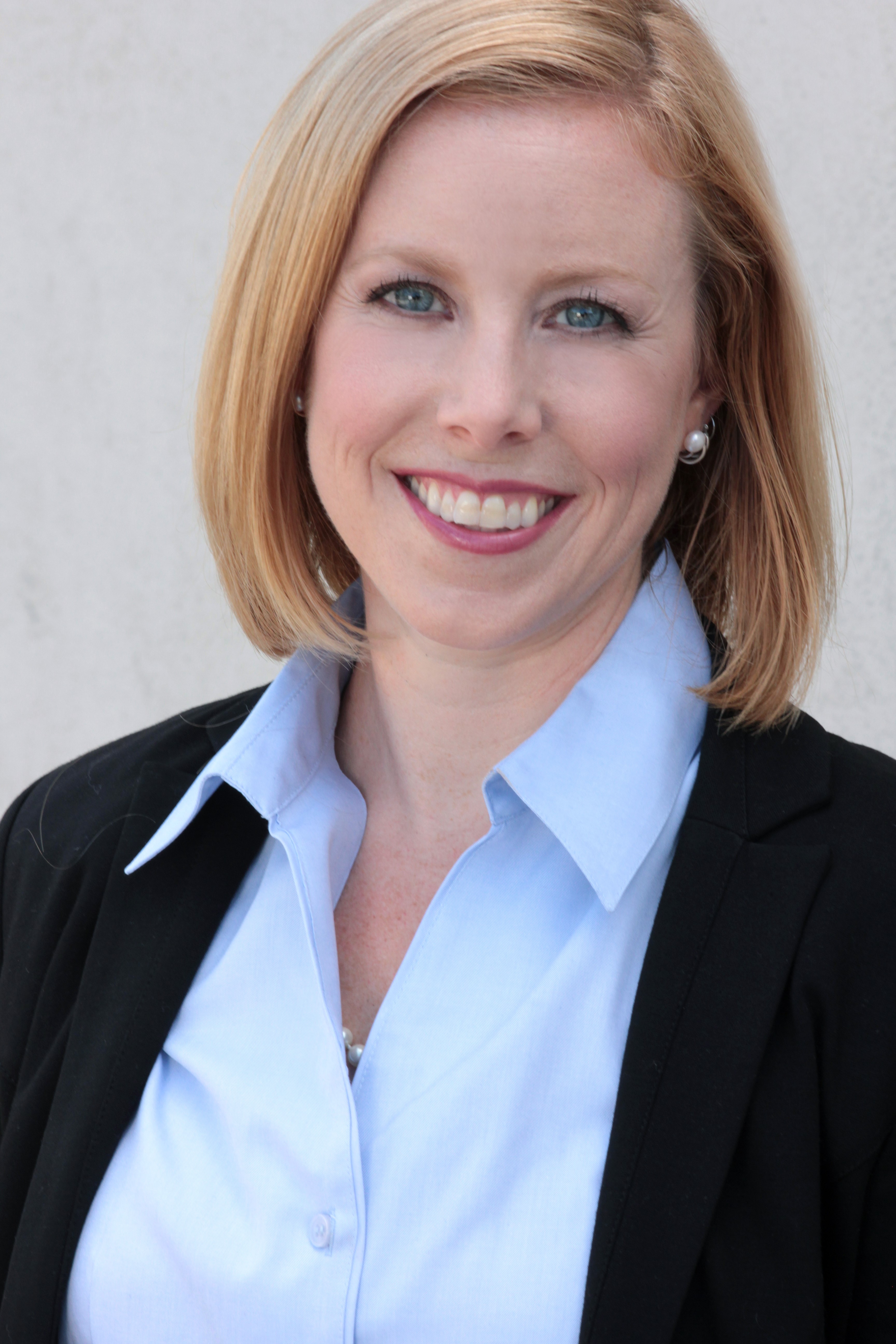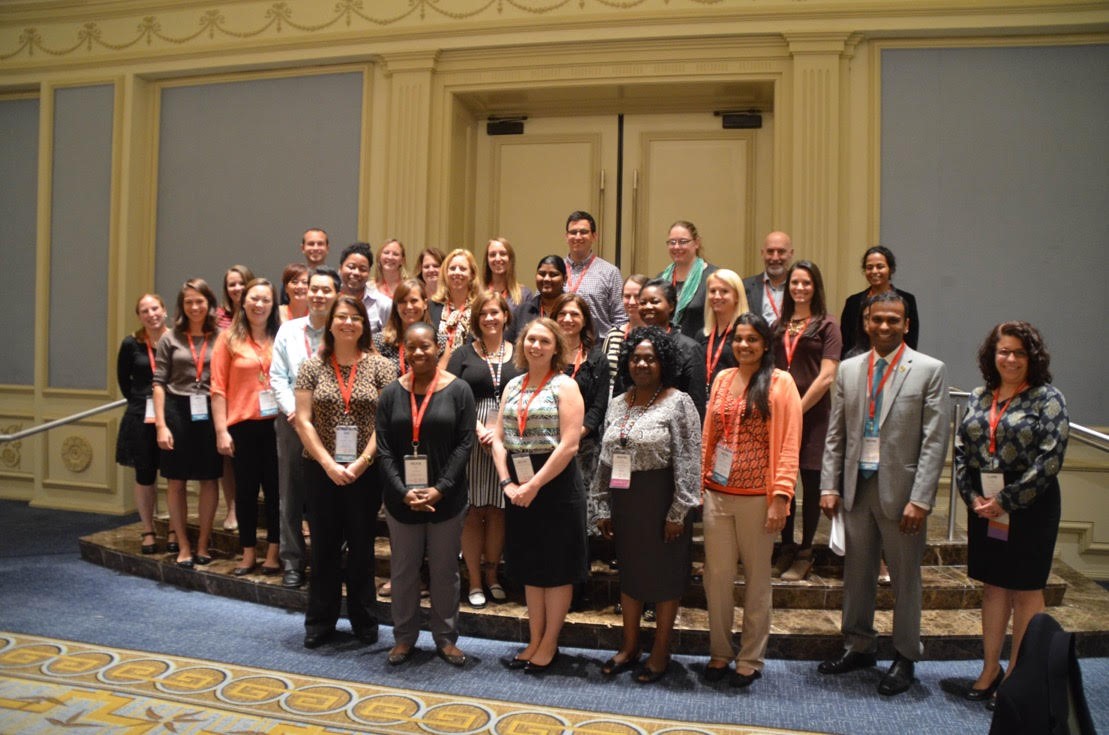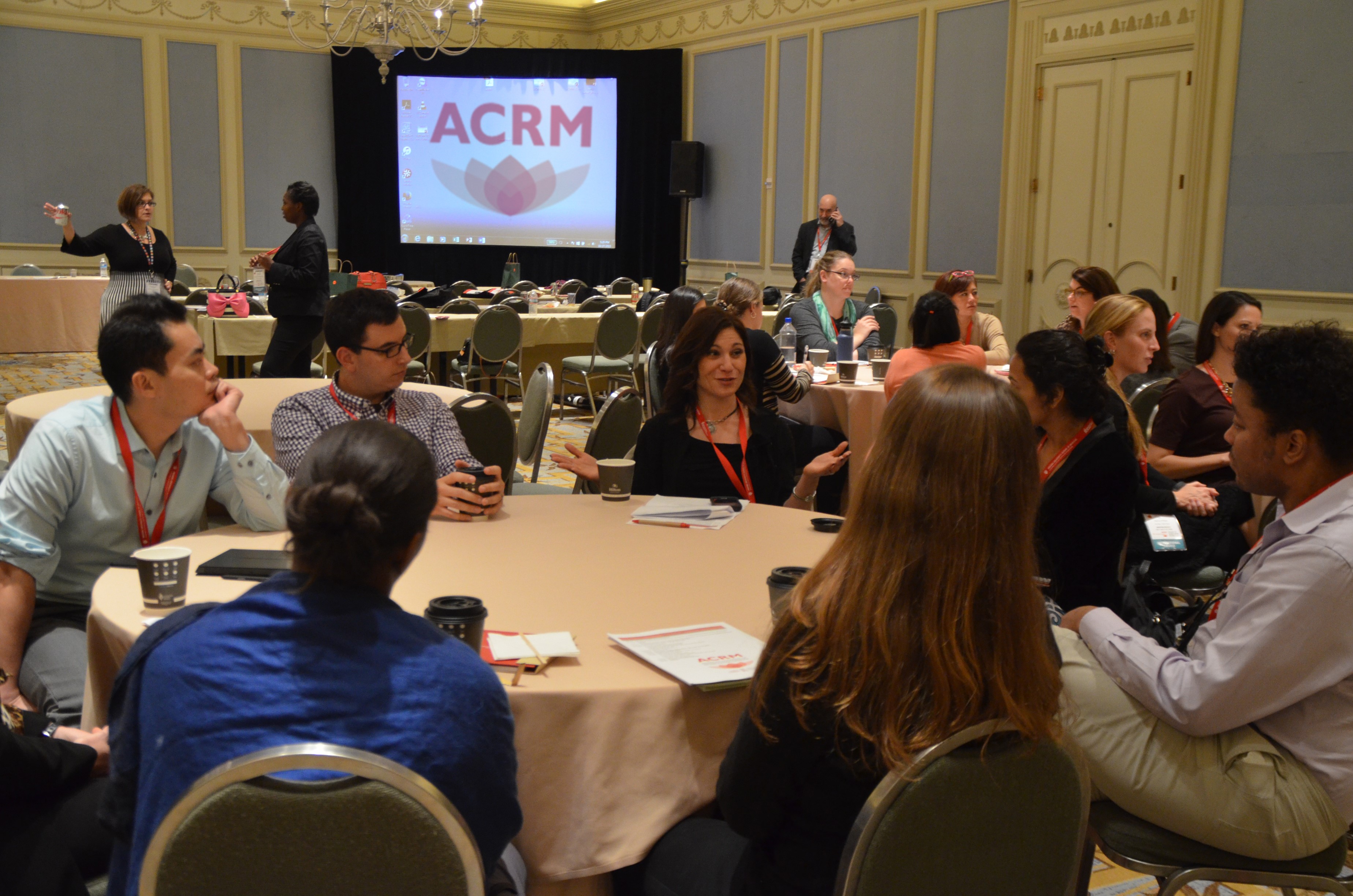Recap of the ACRM 2015 Annual Conference:
Experience of an Early Career Attendee
by Alison Cogan, PhD (candidate), OTR/L, University of Southern California
The ACRM Annual Conference is a great place to learn about the latest research in nearly all areas of rehabilitation. As an Early Career member of ACRM (and PhD student), it also provides unique opportunities for networking, career planning, and interdisciplinary collaboration that I have not experienced anywhere else.

Alison Cogan
Lots of these opportunities can be found within ACRM’s different networking and special interest groups. These groups are a great way for early career members to get involved and get recognized by their peers and influential leaders in the field. Active membership in these groups often spurs productive collaborations and other networking opportunities; not to mention, serving on group projects within these communities is a fantastic way to build your CV.
For instance, I am a member of the Military and Veterans Affairs Networking Group. As a member of this group, I volunteered to contribute to a proposal to help conduct one of the pre-conference instructional courses in 2015. Our proposal was accepted and our team – which consisted of anthropologists, a neuropsychologist, and an occupational therapist (me) – presented a Pre-Conference Instructional Course about the qualitative research in rehabilitation on Monday morning. Being able to contribute to this instructional course with the Military Networking Group was an amazing educational experience for me as a graduate student; one that I believe gives me an advantage when it comes to career advancement and success.
Another highlight of the conference for me as an early career attendee was the Early Career Development Course (ECDC). This course was a standout this year, and well worth the investment of the registration fee.

2015 Early Career Development Course Participants
The program started off with an inspiring keynote address by Dr. Ken Ottenbacher about the characteristics of successful scholars. Next, we changed gears and Drs. Dawn Neumann and Amy Harrold introduced the process of creating an individual development plan (IDP) to support career planning and goal attainment.
We discussed all of the components of the IDP until lunch, when we sat with mentors who discussed different topics. After lunch, we learned about funding opportunities for early career researchers from funding agencies, including Dr. Ralph Nitkin from NCMRR, Dr. Brian Schultz from the VA, and Dr. Cate Miller from NIDILRR. We also heard from early career researchers who had been successful in attaining funding through these mechanisms.

Early Career Development Course Small Group Breakouts
For the remainder of the afternoon, we returned to our small group discussions about the IDP. At the end of the day, we headed over to the Expo Hall for the Early Career Reception, where we connected with the leaders of the various ACRM Interdisciplinary Special Interest Groups (ISIGs) and Networking Groups (NGs). Never before have I attended a conference where the organization’s leaders are so accessible, especially for a student like myself.
An action-packed two days, and the conference had not even officially begun! I spent the next three days going to lots of educational sessions, checking out poster presentations, and networking.
Early Career ReceptionI chatted with people about post-doctoral fellowship opportunities and faculty positions, learned about research that will inform my dissertation work, and attended the Military and Veterans Affairs Networking Group meeting.
As I left the Hilton Anatole and headed to the airport on Friday afternoon, I felt so excited thinking about all the great progress that is happening in rehabilitation research and energized to continue my own work. ACRM offers so many opportunities to get involved and connect with others, especially for Early Career members, and that is what I like most about the conference. Looking forward to 2016 in Chicago!











